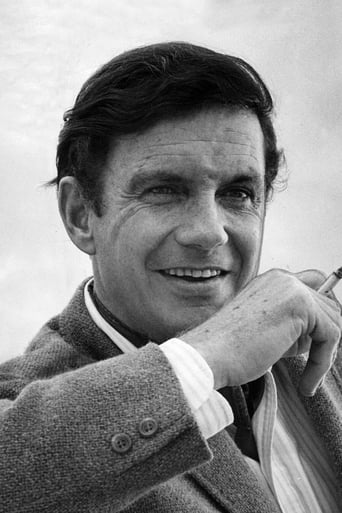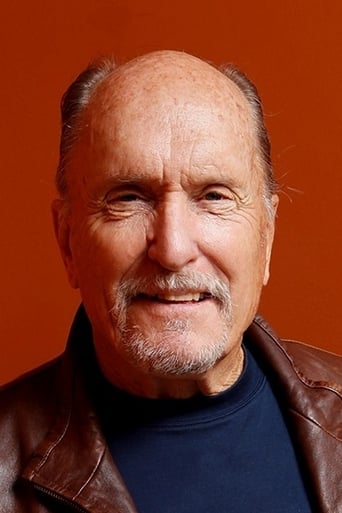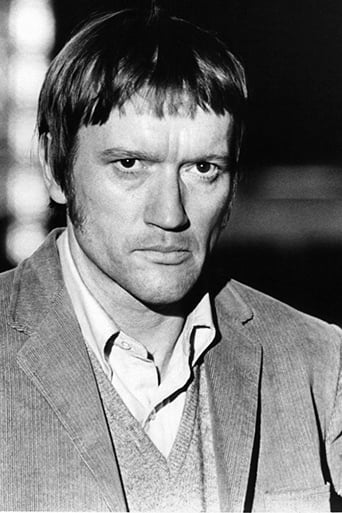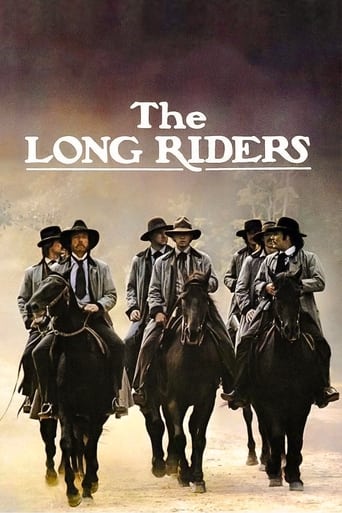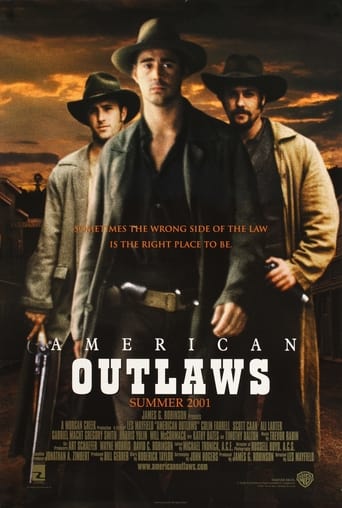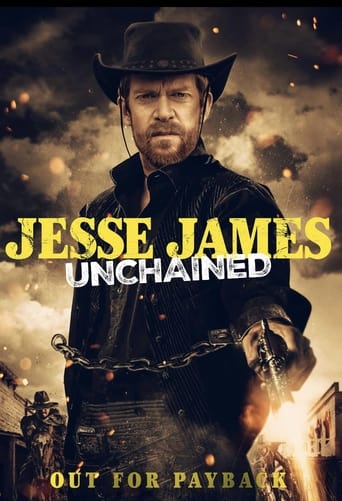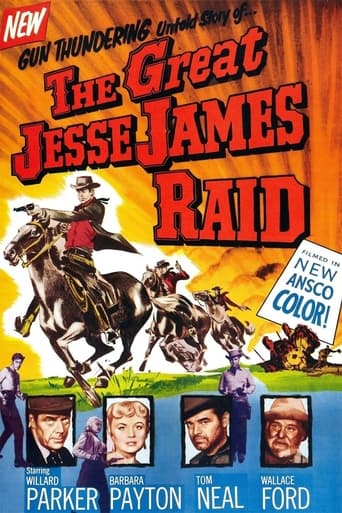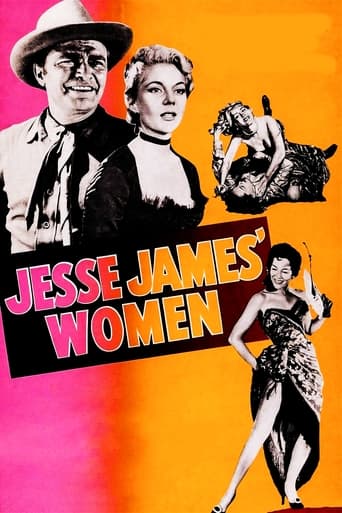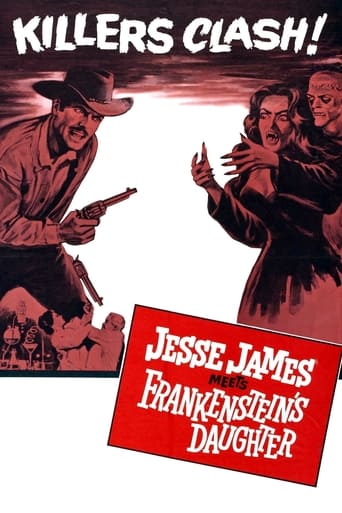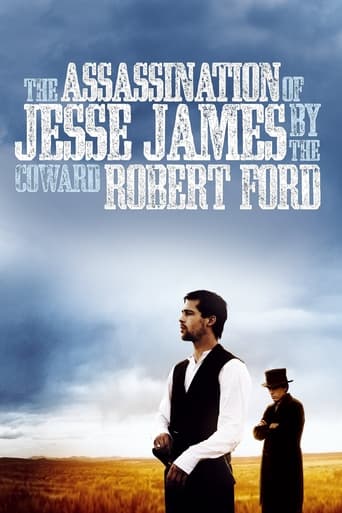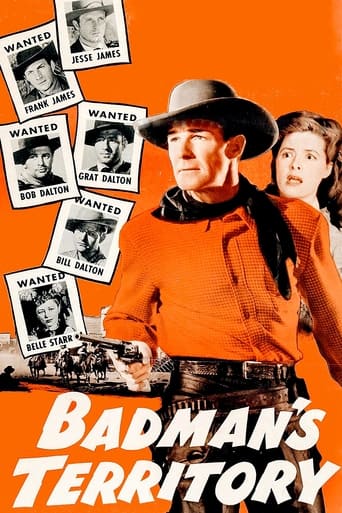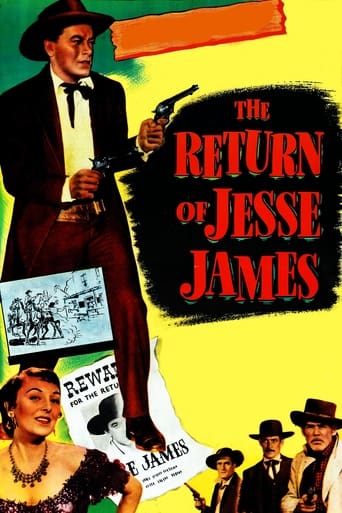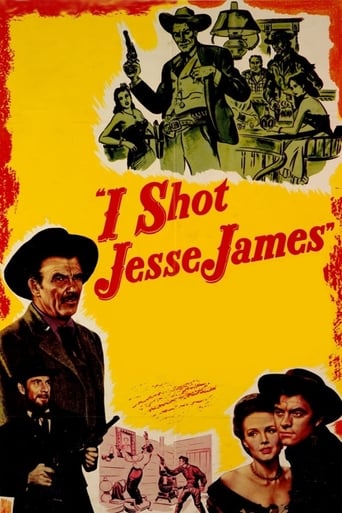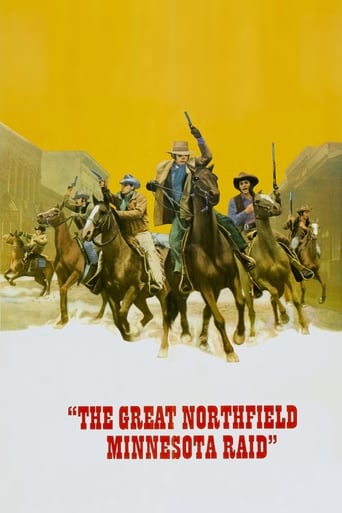
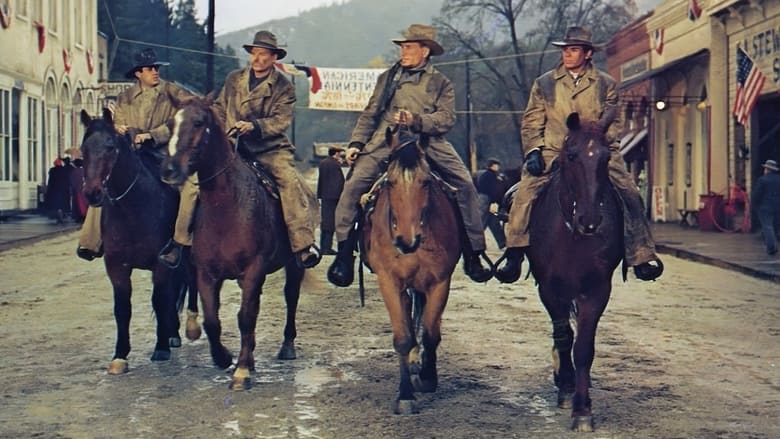
The Great Northfield Minnesota Raid (1972)
The gangs of Jesse James and Cole Younger join forces to rob the First National Bank in Northfield, Minnesota, but things do not go as planned.
Watch Trailer
Cast


Similar titles
Reviews
First the bad: sudden, jarring changes in tone. It veers abruptly from grim, bitter drama to clever caper movie to unfunny comedy. These shifts are badly exacerbated by the messy, eclectic, everything-but-the-kitchen-sink score, which all too often comments on scenes in ways I found ill-fitting and inappropriate. A couple of examples: an early scene in which Jesse riles up the boys by going into a feverish Southern preacher mode, to get them fired up for the titular bank job, is turned from creepy and compelling into light-hearted comedy by the wacky music behind it; similarly, late in the film, a citizen posse chasing the gang commits an atrocity on four innocent men, and the music again makes light of it, with an ironic silly 'wah wah wah'. Just awful. What were they thinking? Also bad, an interminable scene of a raucous baseball game comes out of nowhere and drags on and on with utterly unfunny slapstick. The subplot with the Pinkertons adds next to nothing. The cinematography is too often flat and TV-like.Now the good, and the reasons I gave this a 7 anyway: excellent performances from Robertson and Duvall and the supporting cast, and a very strong screenplay, well-paced, with believable characters whose individual traits are clearly delineated. Cole Younger is a crafty pragmatist, keenly interested in modernity as represented by machinery, ready to leave criminality behind and change with the times; Jesse James is shown as his opposite, an embittered true believer in the Confederate cause, who uses that belief as justification for continued criminal violence. In this theme of men unable to change with the times, the film is akin to some of Peckinpah's work.Also good are fundamentals like art direction, locations, costuming, and set design. This is all handled with grubby veracity, in the same vein as other films from around the same time like "McCabe and Mrs. Miller". It really excels here.On the whole, the character-driven, group-dynamic elements of the story are so fully realized that they make the movie compelling and worth watching in spite of its tonal flaws.
There have been numerous films about Jesse James, most notably Sam Fuller's "I Shot Jesse James", Nick Ray's "The True Story of Jesse James", Kaufman's "The Great Northfield Minnesota Raid", Hill's "The Long Riders" and Dominik's "The Assassination of Jesse James by the Coward Robert Ford".Being the most recent, Dominik's film gets all the attention, but Kaufman's and Hill's deserve just as much notice. Though released in the 1970s, Kaufman's film must be watched through the lens of his astronaut epic, "The Right Stuff", both films offering an absurdist take on progress and frontier pushing. Here, Jesse is a confused charlatan and the gang's criminality is seen as being outdated in the face of banking cartels, protection rackets and business scams. In this new world, the business man is the new criminal, violence now taking the form of organised sports, rail barons and profit margins. "How much you think that'll fetch?" one man remarks, as he tries to figure out whether he can make more profits selling earrings in pairs or singles. Stuffed dolls are similarly traded for money, whilst steam engines and horseless buggies are treated as, not a form of technological progress, but a form of capitalist spectacle which pushes Jesse and his gang further and further into extinction. Indeed, it is a steam piano constructed to attract people to a bank, which ultimately gets Jesse's gang killed.The gang itself is split into two groups. Those who follow Cole Younger and those who follow Jesse James. Jesse embodies a kind of no-nonsense criminal psychopathy, stealing and killing and forever unable to live up to his romantic myth (he pretends to receive messages from God, but nobody believes him). Cole, in contrast, tries to play the game by the banks' rules, using guile, cunning and elaborate schemes. Significantly, Cole's plan backfires and he dies, whilst the lawless Jesse, a product of a different age, rides comically off into the sunset. Like Altman's "Thieves Like Us", the film subversively portrays its gangs, not as noble Robin Hoods stealing from corporate fat cats, but part of the same all inclusive racket.Walter Hill's "The Long Riders" is a different sort of beast altogether. This is a fast paced action movie, the "legendary moments" in the life of Jesse James downplayed in favour for ambiance and texture. Town dances, chirping crickets, women being pushed on swings, touching romantic relationships with whores...this is film which serves up a certain air of melancholy, before launching into a series of staggeringly violent action set pieces. Hill's gangsters are not wild-eyed maniacs but disenfranchised criminals looking to score easy cash so that they can retire to some country paradise. In other words, it's a Michael Mann macho poem with the violence of Walter Hill's mentor, Sam Peckinpah, grafted on.Hill's film also revolves around a cat and mouse feud between Jesse and the Pinkerton Detective Agency, a group of lawmen working for the banks and railroads. In an effort to humanise the gang, the film paints these lawmen as murderous brutes who kill innocents and set homes ablaze. These, of course, are narrative tactics used to convince us that Jesse and his boys are innocent of any wrong doings and that they were merely provoked by violent authorities. Andrew Dominik's "The Assassination of Jesse James by the Coward Robert Ford", in contrast, is implicitly about celebrity. Here, Jesse's gang are mythologized through legend and media exposure, and it is this which curses them. Jesse himself is killed, not by Robert Ford, but by celebrity itself. The film is thus about, not only looking, but being looked down upon, looked up at, and having perceptions projected upon you. Jesse's death, in which looking at a picture literally kills him, encapsulates all these themes. It is Jesse's own gaze, his aloof attitude toward Ford, which causes Ford's worshipful stare to be corrupted, but more importantly, co-oped by Pinkerton. Here, celebrity and mythology bulldoze truths, and court death by assuming a kind of superiority. Of course death, rather than debunking myths, tends to reinforce them further.But while all three films go off on their own interesting tangents, they make a mistake which has been around since Henry Fonda's 1939 film, "Jesse James". These films ignore history and turn Jesse in a superstar, a Robin Hood, a pretty boy rogue, when this image was wholly invented by John Edwards, a racist and pro Confederate journalist who wanted to create a heroic figure to help rally people against the Union.At the time, the state of Missouri belonged to the Confederates, whereas the state of Kansas was held by the Union. The two states fought each other fiercely, killing civilians, burning houses and committing various other war crimes. Jesse James, following in his brother's footsteps, joined the Confederates, fought with them for several years and then left the army to form a robbery gang with several soldiers. They hit trains and banks and kept the loot, but because banks and railroads were symbols of the Union States (who were forcing farmers, civilians etc to buy Federal dollars), it became easy for Confederate supporters to turn Jesse into a kind of rebel figure.Jesse then began to milk this image, selling himself as an altruistic warrior who fought evil Yankee rail barons for Southern honour. In reality, far from being the last hurrah of the Confederate cause, Jesse was a cold hearted guy who fought for the preservation of slavery, robbed trains dressed as the KKK and kept all the loot for him and his gang. Of course none of the Jesse James films deal with this, even Dominik's, which is specifically about the allure and falsity of celebrity.7.9/10 - Interesting.
Although the central character of The Great Northfield Minnesota Raid is Cliff Robertson as Cole Younger, Robert Duvall joins a great pantheon of actors that range from Tyrone Power to Brad Pitt in playing the legendary outlaw of the old west, Jesse James. Some say that the James/Younger gang were the last Confederates out there actively engaged in warfare against the invading Yankees on behalf of the south. This film certainly takes that position.The Great Northfield Minnesota Raid took place in 1877 and was the biggest job attempted by the gang and turned into the biggest flop in their outlaw career. Word leaked out about the robbery and the Pinkertons and the local law enforcement were waiting. The incident is shown in just about every Jesse James film there is.The James/Younger gang remain populist heroes to this day in many quarters. They were an expression of outrage by a conquered people, the poor white class who saw land taken over illegally by Yankee managed railroads or foreclosed by banks with northern management they ultimately answered to. A decade later these people would find a voice in the Populist Party and if Jesse James hadn't been such a person of violence, he might have had a great career as a Populist politician, he was reputed to be that charismatic.Younger's a different story, his charisma as it were was a laid back kind. He's got two brothers to look after, Bob and Jim and wants to live long enough to get the amnesty promised by the state of Missouri. It's one of the reasons the James/Younger gang is operating as far north as Minnesota. That and the fact they can rob from Yankees if they have to rob at all.As is shown in the film, Missouri was debating an amnesty, but certain interests wanted to make sure that didn't happen. The gang is operating outside their home state, lest any outlaw activities interfere with the amnesty. And the Pinkertons want to nail them all before the amnesty ever is passed as an example.The Great Northfield Minnesota Raid is one fine western with two rugged leads and very realistic settings for the old West. Fans of that generation and younger should not miss this one.
In this film the real brain of Jesse James's gang is Cole Younger(Clff Robertson). Jesse(Robert Duvall) is a very mean guy, who does not care much for women and his brother Frank is just his yes man. Robertson is excellent as Cole Younger, he looks like a heavy man, which Cole really was, he is intelligent and human. When he hears that amnesty was given to the gang, he goes to Northfield to stop Jesse from robbing the bank, but on the way he learns that it was denied, so he decides to go along with the raid. When he learns that there is almost no money in the bank because people would rather keep it at home, he conceives a plan with the bank's owner for everybody to get scared and make deposits. There is a quite comical baseball game between St Paul and Northfield where Younger meets the town's most important persons. This version of the James and Younger's story seems to be very far from what really happened, but I enjoyed every minute of it.


